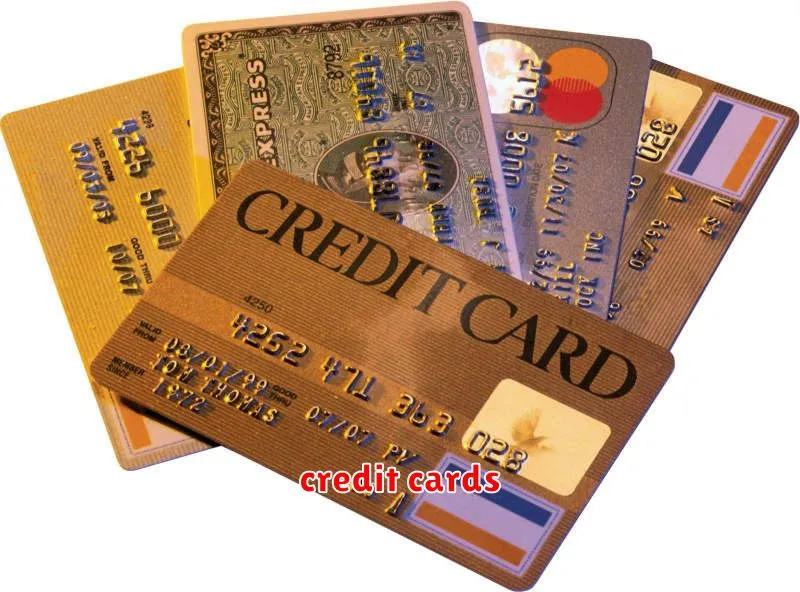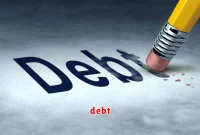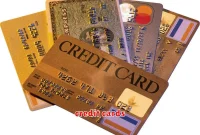Are you looking to build a strong financial foundation? Credit cards can be a powerful tool in your financial arsenal, but only if used responsibly. While they offer convenience, rewards, and the ability to build credit, they can also lead to debt if not managed carefully. This article will provide you with practical tips on how to use credit cards responsibly, avoiding the pitfalls of debt and maximizing the benefits of credit card usage.
Understanding how to effectively manage your credit cards is crucial for achieving financial freedom. By following the tips and strategies outlined in this article, you can harness the power of credit cards to your advantage, building a positive credit history, enjoying valuable rewards, and ultimately taking control of your financial future.
The Importance of Responsible Credit Card Use
Credit cards can be a valuable tool for building credit, making purchases, and accessing cash in emergencies. However, using them irresponsibly can lead to debt, financial stress, and damage to your credit score. Responsible credit card use involves using your card wisely and paying your bills on time, ensuring you avoid accruing unnecessary debt and maintain a healthy financial standing.
By using credit cards responsibly, you can reap their benefits without falling into a trap of debt. This includes:
- Building Credit History: Responsible credit card use helps establish a positive credit history, which is essential for future financial endeavors like obtaining loans, mortgages, or even renting an apartment.
- Managing Expenses: Credit cards can help you track your spending and stay organized with your finances. They also offer the convenience of contactless payments and online shopping.
- Emergency Funds: In unforeseen situations, credit cards can provide a temporary lifeline for essential expenses, like medical bills or car repairs.
- Reward Programs: Many credit cards offer rewards programs, such as cash back, travel miles, or points that can be redeemed for discounts or merchandise. These rewards can add value to your spending.
Responsible credit card use is crucial for maintaining a healthy financial life. It allows you to enjoy the benefits of credit while avoiding the pitfalls of debt and financial instability.
How to Choose the Right Credit Card for Your Needs
Choosing the right credit card can be a daunting task. With so many options available, it’s important to consider your needs and spending habits to make an informed decision. Here are some key factors to keep in mind:
1. Rewards Programs: Credit cards offer various rewards programs, including cash back, travel miles, points, or discounts. Determine the type of rewards that align with your spending habits and preferences. For instance, if you frequently travel, a travel rewards card might be beneficial.
2. Interest Rates: The interest rate you’re charged on your balance significantly impacts your overall cost. Look for cards with a low annual percentage rate (APR), especially if you anticipate carrying a balance.
3. Annual Fees: Some cards have an annual fee, while others are fee-free. Consider the value you’ll receive in rewards or benefits compared to the cost of the annual fee.
4. Perks and Benefits: Evaluate the additional perks and benefits offered, such as travel insurance, purchase protection, or extended warranties. These can provide significant value, depending on your lifestyle and spending habits.
5. Credit Limit: The credit limit is the maximum amount you can borrow. Choose a card with a credit limit that meets your needs without exceeding your ability to manage your spending.
6. Eligibility Requirements: Check the eligibility criteria for each card, including credit score requirements, income levels, and other factors. Make sure you meet the necessary conditions before applying.
By carefully considering these factors, you can choose a credit card that aligns with your financial goals and spending habits. Remember, responsible credit card usage is crucial for building good credit and achieving financial stability.
Tips for Managing Credit Card Debt
Credit cards can be a convenient and useful tool, but they can also lead to debt if not used responsibly. Here are some tips for managing your credit card debt and avoiding future problems:
1. Pay more than the minimum payment: The minimum payment is often just a small percentage of your balance, and you’ll end up paying a lot of interest over time. Aim to pay more than the minimum each month, even if it’s just a little extra. This will help you pay down your debt faster and save on interest charges.
2. Consider a balance transfer: If you have a high interest rate on your current card, you may want to consider transferring your balance to a card with a lower interest rate. This can save you a significant amount of money in interest charges. However, make sure you understand the terms and conditions of any balance transfer offer, as there may be fees involved.
3. Create a budget: A budget can help you track your spending and identify areas where you can cut back. This can help you free up more money to pay down your debt. It can also help you avoid overspending in the future.
4. Seek professional help: If you’re struggling to manage your debt, don’t be afraid to seek professional help. A credit counselor can help you develop a debt management plan and negotiate with your creditors.
Managing your credit card debt takes time and effort, but it’s worth it in the long run. By following these tips, you can stay on top of your finances and avoid the stress of overwhelming debt.
The Impact of Credit Card Interest Rates
Credit card interest rates can have a significant impact on your finances, both positively and negatively. Understanding how interest rates work is crucial for using credit cards responsibly. Interest rates are the cost of borrowing money, expressed as a percentage of the outstanding balance. If you carry a balance on your credit card, you’ll be charged interest on that balance, which can add up quickly and make it challenging to pay off your debt.
High interest rates can make it difficult to manage your credit card debt. The longer you carry a balance, the more interest you’ll accrue, leading to a snowball effect. This can make it seem like you’re constantly paying off interest rather than reducing your principal balance.
Conversely, low interest rates can be beneficial, making it easier to manage your debt and build a positive credit history. If you pay your balance in full each month, you won’t have to worry about interest charges, giving you more control over your finances.
Therefore, choosing a credit card with a low interest rate is essential for responsible credit card usage. Compare offers from different lenders and prioritize cards with lower APRs (annual percentage rates) to minimize interest charges. By understanding the impact of credit card interest rates, you can make informed decisions to avoid debt and build a healthy financial future.
How to Build Credit with a Credit Card
Building credit is essential for securing loans, renting apartments, and even getting a job. Using a credit card responsibly can help you establish a positive credit history. Here’s how:
1. Start with a Secured Credit Card: If you have limited credit history, a secured credit card is a great starting point. You’ll need to make a security deposit, which acts as collateral for the card. This reduces the risk for the lender and makes it easier to get approved.
2. Use Your Card Regularly: Make small purchases on your card and pay them off in full each month. This demonstrates responsible credit use and helps build your credit score.
3. Pay Your Bills on Time: Timely payments are crucial for building good credit. Set reminders or automate payments to avoid late fees and damage your credit score.
4. Keep Your Credit Utilization Low: Your credit utilization ratio is the amount of credit you use compared to your available credit limit. Aim to keep this ratio below 30%.
5. Don’t Apply for Too Many Cards: Each credit application creates a hard inquiry on your credit report, which can temporarily lower your score. Only apply for new cards when you truly need them.
By following these tips, you can use a credit card as a tool to build a strong credit history and secure your financial future.
Common Mistakes to Avoid with Credit Cards
Credit cards can be a valuable tool for building credit, earning rewards, and making large purchases, but they can also lead to debt if not used responsibly. Here are some common mistakes to avoid when using credit cards:
Not Paying Your Bill in Full Each Month: One of the biggest mistakes people make with credit cards is carrying a balance from month to month. This can quickly lead to high interest charges, which can make it difficult to pay down your debt. It’s important to always aim to pay your credit card bill in full each month to avoid interest charges.
Using Credit Cards for Everyday Expenses: While it’s tempting to use a credit card for everyday purchases like groceries or gas, this can lead to overspending and debt. It’s best to use credit cards for large purchases or emergencies and to pay for everyday expenses with cash or debit cards.
Not Monitoring Your Spending: It’s important to keep track of your credit card spending to avoid overspending. You can do this by reviewing your credit card statement each month and using online tools to track your spending.
Opening Too Many Credit Cards: Opening too many credit cards can lower your credit score, making it more difficult to get approved for loans or other credit products in the future. It’s best to only open credit cards when you need them and to use them responsibly.
Ignoring Late Payments: Late payments can damage your credit score and result in late fees. It’s important to make your credit card payments on time each month.
By avoiding these common mistakes, you can use credit cards responsibly and build a healthy credit score.
The Role of Credit Cards in Financial Planning
Credit cards can be a powerful tool for financial planning when used responsibly. They can help you build credit, which is essential for obtaining loans, mortgages, and other financial products in the future. Credit cards can also offer rewards, such as cash back, travel miles, or points, which can help you save money on purchases.
However, it’s crucial to understand that credit cards are not a free ride. If you don’t manage your credit card debt wisely, you can quickly find yourself in a cycle of debt that can be difficult to break. That’s why responsible credit card use is essential for financial planning.
How to Maximize Rewards with Credit Cards
Credit cards can be a powerful tool for building credit and earning rewards, but it’s important to use them responsibly to avoid debt. One way to maximize rewards is to choose a card that aligns with your spending habits. Consider your most frequent purchases, whether it’s groceries, gas, travel, or dining, and select a card that offers bonus rewards in those categories. For example, if you travel frequently, a travel rewards card might be a good fit.
Another important tip is to pay your balance in full each month. This prevents interest charges from accumulating, which can quickly erode your rewards. If you can’t pay your balance in full, make sure to make more than the minimum payment to reduce your debt as quickly as possible.
It’s also crucial to track your spending and rewards. This will help you stay on top of your budget and ensure you’re maximizing your rewards. There are various apps and websites that can help you track your spending and rewards, so find one that works best for you.
Finally, take advantage of sign-up bonuses offered by many credit card companies. These bonuses can provide a significant boost to your rewards balance, but remember to read the terms and conditions carefully to understand the requirements for earning the bonus.
By following these tips, you can leverage credit cards to earn valuable rewards while maintaining a healthy financial standing.
The Impact of Credit Cards on Your Credit Score
Credit cards can have a significant impact on your credit score, both positively and negatively. When used responsibly, credit cards can help build your credit history and improve your score. However, if you’re not careful, they can also lead to debt and damage your credit.
Your credit utilization ratio, which is the amount of credit you’re using compared to your total available credit, is one of the most important factors in your credit score. The lower your utilization ratio, the better. Using a large portion of your available credit can hurt your score.
Making your payments on time is another crucial factor. Late payments will negatively affect your credit score. Building a history of on-time payments is essential for improving your credit.
Opening and closing credit cards also affects your credit score. Opening too many new credit cards can lower your score, as lenders may see it as a sign of financial instability. Closing old credit cards can reduce your available credit, potentially increasing your credit utilization ratio.
In conclusion, credit cards can be a valuable tool for building credit and managing your finances, but they must be used responsibly. Understanding how credit card usage affects your credit score can help you make informed decisions about managing your finances and achieving your financial goals.
The Future of Credit Card Use
While the concept of credit cards might seem antiquated in our digital age, their future is anything but bleak. In fact, credit cards are likely to become even more integrated into our lives, evolving alongside technology and changing consumer habits.
One key trend is the rise of digital-first credit cards. These cards are issued and managed entirely online, often with minimal or no physical presence. They offer numerous advantages, such as instant approval, easy account management, and seamless integration with mobile wallets.
Another significant development is the increased adoption of credit card rewards programs. These programs incentivize responsible credit card use by offering cash back, travel miles, and other perks. As competition intensifies, we can expect these rewards to become increasingly attractive, further enticing consumers to use credit cards.
However, the future of credit card use is not without its challenges. The potential for overspending and debt accumulation remains a concern. As technology makes spending easier, responsible financial habits become even more crucial.
Ultimately, the future of credit cards depends on how consumers choose to use them. By embracing responsible practices and utilizing the benefits they offer, credit cards can remain a valuable financial tool for individuals and businesses alike.




